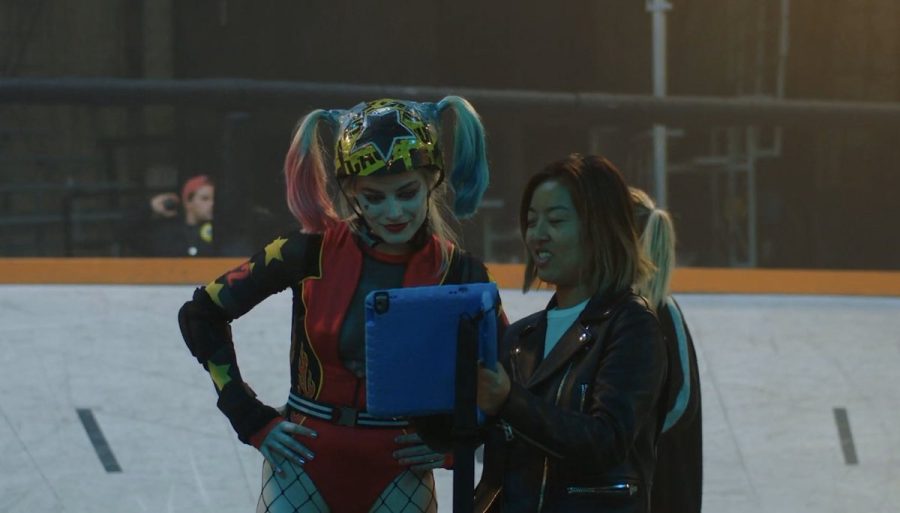It’s about time gender equality in the film industry becomes a reality and not just a pipe dream.
It’s no secret that the film industry uses gender stereotypes. Many companies cater their films to a specific gender or group of people. Now, although the film industry has made strides toward equality, it’s still not enough. This becomes very evident in “Birds of Prey,” a spinoff film about Harley Quinn and her life after separating from the Joker. When “Birds of Prey” was released, critics and film fanatics flocked to their computers to rip apart the film in their reviews. Reviews compared box office numbers of “Suicide Squad” to “Birds of Prey,” calling the Quinn spinoff a case of “go woke, go broke.” To somebody who hasn’t seen “Birds of Prey” yet, it might seem like the movie flopped dramatically, even worse than its mother film “Suicide Squad;” this, however, was not the case.
“Birds of Prey” scored a whopping 51 percent more on Rotten Tomatoes then “Suicide Squad,” earning a ‘fresh’ rating. Unfortunately, the box office numbers did not reflect this. While “Suicide Squad” managed to earn $746.8 million at the box office, “Birds of Prey” only earned $201.9 million. This red flag — the juxtaposition between box office numbers and ratings — actually tells how little the film industry cares about advertising films about strong female leads.
By promoting the movie with a ‘soft’ release overseas, “Birds of Prey” crashed at the box office. “Suicide Squad” received $75 million in campaign fees while “Birds of Prey” only received $6.94 million. That $68.06 million difference alone should clue viewers on the bias in how the comic book franchise markets their specific movies. Looking at the numbers alone, production studios seem to tailor their promotions towards movies that their male-dominated audience has historically shown a liking towards — male-centric superhero films.
“Birds of Prey” is not the only women-lead film that has faced this type of backlash regardless of its high ratings. In 2017, “Wonder Woman” was released and quickly attracted negative publicity despite landing high ratings. Men branded the film “feminist propaganda” and flooded Rotten Tomatoes, sprinkling in horrible reviews and ratings of the film. One man even praised the film, but still gave it one star. In 2019, “Captain Marvel” was released and became a boiling pot of negative user reviews on Rotten Tomatoes, containing some reviews by people who hadn’t even seen it. Many viewers were blasting Brie Larson, accusing her of being sexist against all men. One man, Dann M., even says that Larson, although providing a decent performance, clearly appears to be doing a Tony Stark imitation. Dann even went as far as raving about Samuel L. Jackson, Jude Law, and Djimon Hounsou, Larson’s male supporting cast members. This is from a four-star review of the film, and yet still bashes the main character of the movie. Based on these reviews, the comic book franchise learns that their audience dislikes superhero films revolving around women. When female-positive content is released, it seems as though men expect female-lead films to fail or end up terribly produced.


This type of market tailoring happens with all films, not just in the comic book franchise. In an annonymous survey taken across different organizations on the UC San Diego campus, 87.5 percent of students believe that certain films and film genres are marketed towards certain genders. Another question revealed that although 84.6 percent of students said that they would go see a movie about sexism or the female experience, around 84.2 percent of students said there was a stigma around what types of shows and movies a person could watch; for example, a guy should stay away from romantic comedies and women should stick to drama. When students say they would be open to watching movies that are female-led, how likely will those students go and support the films that perpetuate a negative stigma against them?
One student said, “According to common mentality, guys definitely stay away from romantic comedies and lean towards more raunchy stuff. Stereotypes also generally have girls watching romantic comedies because they’re simp-y or boy-crazy.” Another student wrote, “[Films are] more skewed towards male-presenting people encouraged to only look to masculine coded characters, [while] female-presenting people are expected to be fine with both male and female protagonists on the whole.”
This type of thinking, in which women can be comfortable with watching any type of movie while men shouldn’t feel comfortable watching a movie about female struggle or a movie centered around women, has a great impact on how society views media consumption. Once this thinking is cycled through one generation, generation after generation thereafter will soon perpetuate the idea that men and women are divided. The only way to alleviate this cycle is if the film industry makes more of an effort to promote female-lead and male-lead films equally and recruit more women to create a more diverse range of content. To break the chain of sexism in media consumption, the film industry must change the way they view female-lead content.
Image courtesy of Comic Book Movie














